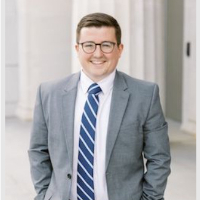Mc Intosh DUI-DWI Lawyer, Alabama
Not enough matches for Mc Intosh DUI-DWI lawyer.
Below are all Mc Intosh Criminal lawyers.
Jason Hadley
✓ VERIFIEDJason was born in Mobile, Alabama, and attended Baldwin County High School. During law school, Jason clerked at Ringer & Lingold in Mississippi, and u... (more)
James Murray Byrd
✓ VERIFIEDMy name is James M. Byrd and I'm a Mobile, Alabama criminal defense attorney. I was born in Mobile and graduated from Jefferson Davis High School in M... (more)
Christine C. Hernandez
✓ VERIFIEDChristine graduated from Troy State University in 1990 with a Bachelor’s degree in Education and Sports Medicine. She moved to Mobile, as a graduate... (more)
Cody Shea Poe
✓ VERIFIEDCody Poe helps people reclaim their voices and protect their rights, providing consumer debt defense, criminal defense, and insurance litigation.
FREE CONSULTATION
CONTACTRichard O. Kingrea
Bayless Edward Biles
J. Thomas Pilcher
FREE CONSULTATION
CONTACT




